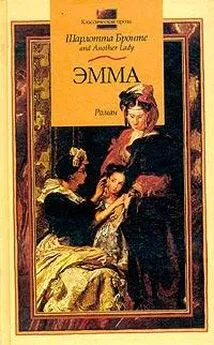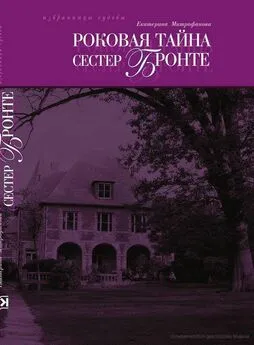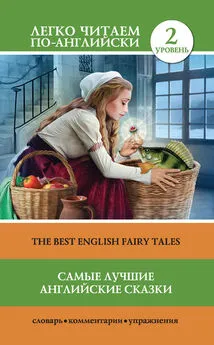Шарлотта Бронте - Лучшие романы сестер Бронте / The best of the Brontë sisters
- Название:Лучшие романы сестер Бронте / The best of the Brontë sisters
- Автор:
- Жанр:
- Издательство:Литагент «Эксмо»334eb225-f845-102a-9d2a-1f07c3bd69d8
- Год:2013
- Город:Москва
- ISBN:978-5-699-61892-7
- Рейтинг:
- Избранное:Добавить в избранное
-
Отзывы:
-
Ваша оценка:
Шарлотта Бронте - Лучшие романы сестер Бронте / The best of the Brontë sisters краткое содержание
«Иностранный язык: учимся у классиков» – это только оригинальные тексты лучших произведений мировой литературы. Эти книги станут эффективным и увлекательным пособием для изучающих иностранный язык на хорошем «продолжающем» и «продвинутом» уровне. Они помогут эффективно расширить словарный запас, подскажут, где и как правильно употреблять устойчивые выражения и грамматические конструкции, просто подарят радость от чтения. В конце книги дана краткая информация о культуроведческих, страноведческих, исторических и географических реалиях описываемого периода, которая поможет лучше ориентироваться в тексте произведения.
Серия «Иностранный язык: учимся у классиков» адресована широкому кругу читателей, хорошо владеющих английским языком и стремящихся к его совершенствованию.
Лучшие романы сестер Бронте / The best of the Brontë sisters - читать онлайн бесплатно ознакомительный отрывок
Интервал:
Закладка:
‘Not at all – too pertinent, you mean. So you won’t tell me? – Well, I’ll spare your woman’s pride, and, construing your silence into “Yes,” I’ll take it for granted that I was the subject of your thoughts, and the cause of your affliction – ’
‘Indeed, sir – ’
‘If you deny it, I won’t tell you my secret,’ threatened he; and I did not interrupt him again, or even attempt to repulse him: though he had taken my hand once more, and half embraced me with his other arm, I was scarcely conscious of it at the time.
‘It is this,’ resumed he: ‘that Annabella Wilmot, in comparison with you, is like a flaunting peony compared with a sweet, wild rosebud gemmed with dew – and I love you to distraction! – Now, tell me if that intelligence gives you any pleasure. Silence again? That means yes. Then let me add, that I cannot live without you, and if you answer No to this last question, you will drive me mad. – Will you bestow yourself upon me? – you will!’ he cried, nearly squeezing me to death in his arms.
‘No, no!’ I exclaimed, struggling to free myself from him – ‘you must ask my uncle and aunt.’
‘They won’t refuse me, if you don’t.’
‘I’m not so sure of that – my aunt dislikes you.’
‘But you don’t, Helen – say you love me, and I’ll go.’
‘I wish you would go!’ I replied.
‘I will, this instant, – if you’ll only say you love me.’
‘You know I do,’ I answered. And again he caught me in his arms, and smothered me with kisses.
At that moment my aunt opened wide the door, and stood before us, candle in hand, in shocked and horrified amazement, gazing alternately at Mr. Huntingdon and me – for we had both started up, and now stood wide enough asunder. But his confusion was only for a moment. Rallying in an instant, with the most enviable assurance, he began, – ‘I beg ten thousand pardons, Mrs. Maxwell! Don’t be too severe upon me. I’ve been asking your sweet niece to take me for better, for worse; and she, like a good girl, informs me she cannot think of it without her uncle’s and aunt’s consent. So let me implore you not to condemn me to eternal wretchedness: if you favour my cause, I am safe; for Mr. Maxwell, I am certain, can refuse you nothing.’
‘We will talk of this to-morrow, sir,’ said my aunt, coldly. ‘It is a subject that demands mature and serious deliberation. At present, you had better return to the drawing-room.’
‘But meantime,’ pleaded he, ‘let me commend my cause to your most indulgent – ’
‘No indulgence for you, Mr. Huntingdon, must come between me and the consideration of my niece’s happiness.’
‘Ah, true! I know she is an angel, and I am a presumptuous dog to dream of possessing such a treasure; but, nevertheless, I would sooner die than relinquish her in favour of the best man that ever went to heaven – and as for her happiness, I would sacrifice my body and soul – ’
‘Body and soul, Mr. Huntingdon – sacrifice your soul?’
‘Well, I would lay down life – ’
‘You would not be required to lay it down.’
‘I would spend it, then – devote my life – and all its powers to the promotion and preservation – ’
‘Another time, sir, we will talk of this – and I should have felt disposed to judge more favourably of your pretensions, if you too had chosen another time and place, and let me add – another manner for your declaration.’
‘Why, you see, Mrs. Maxwell,’ he began –
‘Pardon me, sir,’ said she, with dignity – ‘The company are inquiring for you in the other room.’ And she turned to me.
‘Then you must plead for me, Helen,’ said he, and at length withdrew.
‘You had better retire to your room, Helen,’ said my aunt, gravely. ‘I will discuss this matter with you, too, to-morrow.’
‘Don’t be angry, aunt,’ said I.
‘My dear, I am not angry,’ she replied: ‘I am surprised. If it is true that you told him you could not accept his offer without our consent – ’
‘It is true,’ interrupted I.
‘Then how could you permit – ?’
‘I couldn’t help it, aunt,’ I cried, bursting into tears. They were not altogether the tears of sorrow, or of fear for her displeasure, but rather the outbreak of the general tumultuous excitement of my feelings. But my good aunt was touched at my agitation. In a softer tone, she repeated her recommendation to retire, and, gently kissing my forehead, bade me good-night, and put her candle in my hand; and I went; but my brain worked so, I could not think of sleeping. I feel calmer now that I have written all this; and I will go to bed, and try to win tired nature’s sweet restorer.
Chapter XX
September 24th. – In the morning I rose, light and cheerful – nay, intensely happy. The hovering cloud cast over me by my aunt’s views, and by the fear of not obtaining her consent, was lost in the bright effulgence of my own hopes, and the too delightful consciousness of requited love. It was a splendid morning; and I went out to enjoy it, in a quiet ramble, in company with my own blissful thoughts. The dew was on the grass, and ten thousand gossamers were waving in the breeze; the happy red-breast was pouring out its little soul in song, and my heart overflowed with silent hymns of gratitude and praise to heaven.
But I had not wandered far before my solitude was interrupted by the only person that could have disturbed my musings, at that moment, without being looked upon as an unwelcome intruder: Mr. Huntingdon came suddenly upon me. So unexpected was the apparition, that I might have thought it the creation of an over-excited imagination, had the sense of sight alone borne witness to his presence; but immediately I felt his strong arm round my waist and his warm kiss on my cheek, while his keen and gleeful salutation, ‘My own Helen!’ was ringing in my ear.
‘Not yours yet!’ said I, hastily swerving aside from this too presumptuous greeting. ‘Remember my guardians. You will not easily obtain my aunt’s consent. Don’t you see she is prejudiced against you?’
‘I do, dearest; and you must tell me why, that I may best know how to combat her objections. I suppose she thinks I am a prodigal,’ pursued he, observing that I was unwilling to reply, ‘and concludes that I shall have but little worldly goods wherewith to endow my better half? If so, you must tell her that my property is mostly entailed [188], and I cannot get rid of it. There may be a few mortgages on the rest – a few trifling debts and incumbrances [189]here and there, but nothing to speak of; and though I acknowledge I am not so rich as I might be – or have been – still, I think, we could manage pretty comfortably on what’s left. My father, you know, was something of a miser, and in his latter days especially saw no pleasure in life but to amass riches; and so it is no wonder that his son should make it his chief delight to spend them, which was accordingly the case, until my acquaintance with you, dear Helen, taught me other views and nobler aims. And the very idea of having you to care for under my roof would force me to moderate my expenses and live like a Christian – not to speak of all the prudence and virtue you would instil into my mind by your wise counsels and sweet, attractive goodness.’
‘But it is not that,’ said I; ‘it is not money my aunt thinks about. She knows better than to value worldly wealth above its price.’
‘What is it, then?’
‘She wishes me to – to marry none but a really good man.’
‘What, a man of “decided piety”? – ahem! – Well, come, I’ll manage that too! It’s Sunday to-day, isn’t it? I’ll go to church morning, afternoon, and evening, and comport myself in such a godly sort that she shall regard me with admiration and sisterly love, as a brand plucked from the burning. I’ll come home sighing like a furnace, and full of the savour and unction of dear Mr. Blatant’s discourse – ’
‘Mr. Leighton,’ said I, dryly.
‘Is Mr. Leighton a “sweet preacher,” Helen – a “dear, delightful, heavenly-minded man”?’
‘He is a good man, Mr. Huntingdon. I wish I could say half as much for you.’
‘Oh, I forgot, you are a saint, too. I crave your pardon, dearest – but don’t call me Mr. Huntingdon; my name is Arthur.’
‘I’ll call you nothing – for I’ll have nothing at all to do with you if you talk in that way any more. If you really mean to deceive my aunt as you say, you are very wicked; and if not, you are very wrong to jest on such a subject.’
‘I stand corrected,’ said he, concluding his laugh with a sorrowful sigh. ‘Now,’ resumed he, after a momentary pause, ‘let us talk about something else. And come nearer to me, Helen, and take my arm; and then I’ll let you alone. I can’t be quiet while I see you walking there.’
I complied; but said we must soon return to the house.
‘No one will be down to breakfast yet, for long enough,’ he answered. ‘You spoke of your guardians just now, Helen, but is not your father still living?’
‘Yes, but I always look upon my uncle and aunt as my guardians, for they are so in deed, though not in name. My father has entirely given me up to their care. I have never seen him since dear mamma died, when I was a very little girl, and my aunt, at her request, offered to take charge of me, and took me away to Staningley, where I have remained ever since; and I don’t think he would object to anything for me that she thought proper to sanction.’
‘But would he sanction anything to which she thought proper to object?’
‘No, I don’t think he cares enough about me.’
‘He is very much to blame – but he doesn’t know what an angel he has for his daughter – which is all the better for me, as, if he did, he would not be willing to part with such a treasure.’
‘And Mr. Huntingdon,’ said I, ‘I suppose you know I am not an heiress?’
He protested he had never given it a thought, and begged I would not disturb his present enjoyment by the mention of such uninteresting subjects. I was glad of this proof of disinterested affection; for Annabella Wilmot is the probable heiress to all her uncle’s wealth, in addition to her late father’s property, which she has already in possession.
I now insisted upon retracing our steps to the house; but we walked slowly, and went on talking as we proceeded. I need not repeat all we said: let me rather refer to what passed between my aunt and me, after breakfast, when Mr. Huntingdon called my uncle aside, no doubt to make his proposals, and she beckoned me into another room, where she once more commenced a solemn remonstrance, which, however, entirely failed to convince me that her view of the case was preferable to my own.
‘You judge him uncharitably, aunt, I know,’ said I. ‘His very friends are not half so bad as you represent them. There is Walter Hargrave, Milicent’s brother, for one: he is but a little lower than the angels, if half she says of him is true. She is continually talking to me about him, and lauding his many virtues to the skies.’
‘You will form a very inadequate estimate of a man’s character,’ replied she, ‘if you judge by what a fond sister says of him. The worst of them generally know how to hide their misdeeds from their sisters’ eyes, and their mother’s, too.’
‘And there is Lord Lowborough,’ continued I, ‘quite a decent man.’
‘Who told you so? Lord Lowborough is a desperate man. He has dissipated his fortune in gambling and other things, and is now seeking an heiress to retrieve it. I told Miss Wilmot so; but you’re all alike: she haughtily answered she was very much obliged to me, but she believed she knew when a man was seeking her for her fortune, and when for herself; she flattered herself she had had experience enough in those matters to be justified in trusting to her own judgment – and as for his lordship’s lack of fortune, she cared nothing about that, as she hoped her own would suffice for both; and as for his wildness, she supposed he was no worse than others – besides, he was reformed now. Yes, they can all play the hypocrite when they want to take in a fond, misguided woman!’
Читать дальшеИнтервал:
Закладка:










